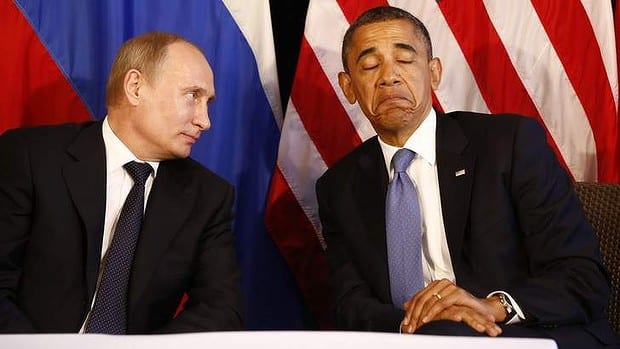By Andrew Sugrue, MA Media and Strategic Communication, 2024

When Russia first launched its invasion of Ukraine in February 2022, outrage was nearly unanimous from U.S. politicians and citizens across the political spectrum. This reaction facilitated the transferal of crucial funds and military hardware to the Ukrainian resistance, helping the country battle Russia to a draw. Now, 14 months later, support for Ukraine aid remains robust on the whole — however, public opinion among Republican base voters is beginning to slide, and the GOP’s rightmost flank is growing increasingly outspoken in opposition to aiding Ukraine.
In January, Gallup found that a plurality of Republican voters (47%) believed the U.S. was providing “too much” support to Ukraine, while 32% said current support was “the right amount” and 18% deemed it “not enough”.
Thus far, Ukraine has excelled at framing its narrative in a way that broadly appeals to American shared identity— but to lock in that 32% of Republicans and prevent that 47% figure from growing, GOP narratives must be understood and addressed with more specificity and precision.

Establishment Republican officeholders — e.g., Senate GOP leader Mitch McConnell, Sen. Mitt Romney, and House Foreign Affairs Chairman Mike McCaul — largely support funding and arming Ukraine. However, officials in the ascendent “Trump wing” of the GOP have been either skeptical toward this assistance or opposed to it altogether. When addressing voters, these anti-assistance officials tend to frame their stance in alignment with one of three general narratives.
Narrative #1: Fiscal conservatism
Criticizing Democrats for spending taxpayer money is a primary line of attack for the GOP, especially against the Biden administration. Giving money to foreign countries is also a common issue in this narrative — foreign financial aid often polls poorly among Republicans.
In a Ukrainian context, the fiscal conservatism narrative has been mainly championed by Trump-wing figures like Kari Lake, who told an audience of conservative activists, “We are living on planet crazy where we have hundreds of billions of dollars of our hard-earned American money being sent overseas to start World War III.”
Narrative #2: “America first”
This second narrative opposes American international involvement more broadly, especially in the context of putting boots on the ground. For example, Rep. Marjorie Taylor Greene has accused Democrats of “funding a proxy war with Russia” and prioritizing opposition to Russia over keeping the U.S. out of a nuclear war. This narrative is less opposed to targeted foreign military operations (e.g., taking out Osama Bin Laden) as it is to involvement in state-building, and it also tends to channel opposition to “globalist” organs of the postwar world order like the U.N. and W.T.O., as well as free-trade agreements like the Trans-Pacific Partnership.
Narrative #3: “What about problems here at home?”
The third narrative paints a picture of American prosperity being the opportunity cost of foreign engagement. It tends to follow a pattern of: “Democrats want to spend taxpayer money on [foreign policy item] instead of spending it on [domestic policy item] here at home.” In his pursuit of the Speakership, GOP leader Kevin McCarthy appealed to Ukraine skeptics in his caucus by using this narrative, saying: “I think people are going to be sitting in a recession, and they’re not going to write a blank check to Ukraine.”
Countering GOP Narratives with Public Diplomacy
To understand how public diplomacy can counteract GOP narratives on Ukraine, it is first crucial to avoid placing all GOP voters in the same basket as highly controversial Republicans like Lake and Greene. Aside from being disingenuous, it is also deleterious to effective public diplomacy — public diplomacy practitioners must understand voters’ narratives and then frame an argument in those terms.
There are some useful examples of American political figures framing support for Ukraine in accordance with the aforementioned GOP narratives. After meeting with President Zelensky in Kyiv, former U.S. Secretary of State Mike Pompeo offered full-throated support for Ukraine aid on the basis that stopping Russia’s aggression now can prevent a costlier war and economic disruption later. Continued promotion of this kind of message by the Ukrainian government to a U.S. audience will be critical.
Additionally, “America first” narratives can be countered by drawing a distinction between U.S. involvement on the ground in Iraq and Afghanistan, and the support from afar that the U.S. is currently giving Ukraine. In a speech to Congress, Zelensky likened American assistance to the WWII-era Lend-Lease Act; this is a prime example of an effective counterframe that contends with anti-direct involvement American narratives.
The what-about-here-at-home argument is more difficult for Ukraine to cauterize. Countering this narrative will depend on U.S. political figures promoting Ukraine aid as not burdening taxpayers.
While these counterframes may not make a dent in Trump-wing opposition to Ukraine, they can help persuade some mainstream Republican voters to stay in the pro-Ukraine camp — thereby making contested primaries more survivable for pro-Ukraine GOP officeholders.
In short: to ensure that the U.S. continues to arm Ukraine, it is critical to arm pro-Ukraine GOP officials with counterframes that decrease the odds that their voters will boot them from office.
The full report is available here.
The opinions expressed in this blog are those of the author. They do not express the views of the Institute for Public Diplomacy and Global Communication or the George Washington University.


